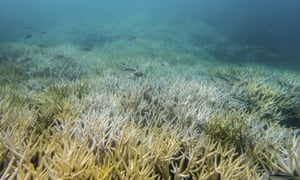Rising temperatures can be charted back to the late 1950s, and the last five years were the five hottest on record
Last year was the hottest ever measured, continuing an upward trend that is a direct result of manmade greenhouse gas emissions.
The key to the measurements is the oceans. Oceans absorb more than 90% of the heat that results from greenhouse gases, so if you want to measure global warming you really have to measure ocean warming.
There are other ways to measure climate change, but none are as convincing as the oceans. Air temperatures are most commonly reported in the media as evidence of global warming, but the problem with these is they are very erratic. While there is certainly a long-term trend of higher air temperatures, any given year may be warmer or colder than the last.
So oceans are key, and they are telling us a clear story. The last
five years were the five hottest on record. The numbers are huge: in
2018 the extra ocean heat compared to a 1981-2010 baseline amounted to
196,700,000,000,000,000,000,000 joules. The current rate of ocean
warming is equivalent to five Hiroshima-size atomic bombs exploding
every second.The key to the measurements is the oceans. Oceans absorb more than 90% of the heat that results from greenhouse gases, so if you want to measure global warming you really have to measure ocean warming.
There are other ways to measure climate change, but none are as convincing as the oceans. Air temperatures are most commonly reported in the media as evidence of global warming, but the problem with these is they are very erratic. While there is certainly a long-term trend of higher air temperatures, any given year may be warmer or colder than the last.
The measurements have been published in the journal Advances in Atmospheric Sciences in an article by Lijing Cheng, the lead author, and his colleagues from the Institute for Atmospheric Physics in China. His collaborators, of which I am one, included researchers from around the world. The article charts ocean heat back to the late 1950s, showing a steady increase.
It isn’t just humans that are suffering and will suffer more in the future. The heating of oceans is causing tremendous problems for sea life, particularly coral reefs. If we continue to warm the planet, we can expect to lose much of these reefs. We can also anticipate reductions in fish and sea life populations.
We scientists sound like a broken record. Every year we present the science and plead for action. Not nearly enough is being done. We can still tackle climate change, but we must act immediately. We have the means to make a difference, we lack only the will.

No comments:
Post a Comment